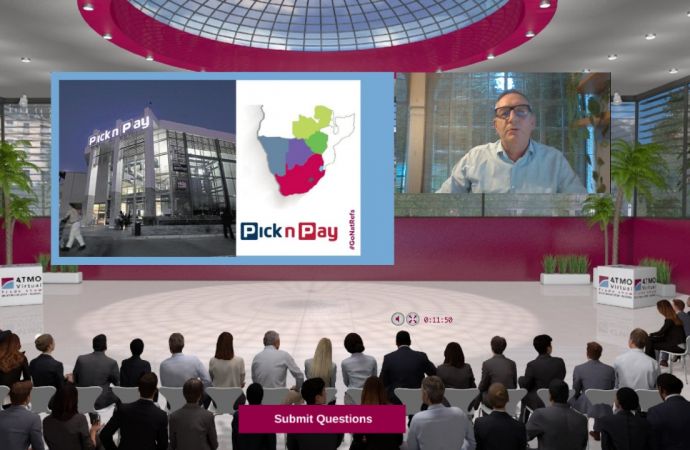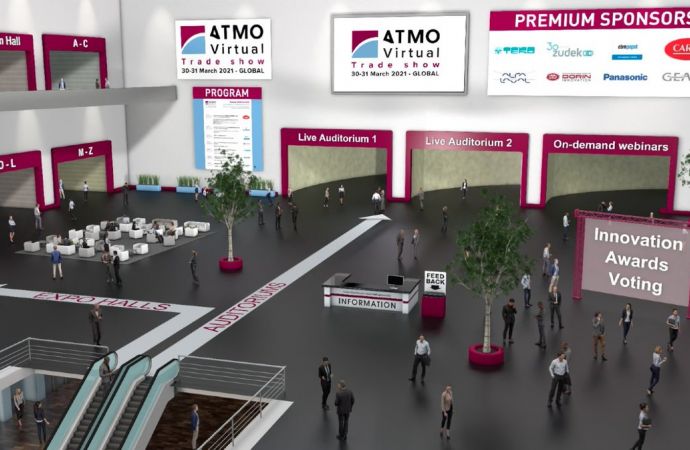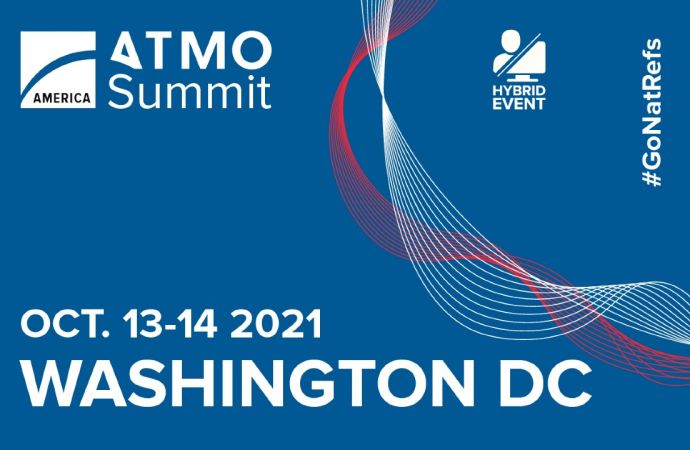Pick n Pay, which currently has 22 transcritical CO2 stores, is also working to get its franchisees to adopt natural refrigerants.

Richard Taylor giving his presentation during ATMO VTS.
South African retailer Pick n Pay has decided to only use natural refrigerant refrigeration in its corporately owned stores, while trying to convince its franchisees to do test the technology, said Richard Taylor, General Manager of Store Design and Implementation at Pick n Pay.
Taylor shared the chain’s refrigeration strategy during an online end-user panel discussion at the ATMO Virtual Trade Show (VTS) on natural refrigerant-based technologies on March 30.
Pick n Pay operates 1,498 stores in total, including clothing and liquor stores. The food retail stores are split between 308 corporate stores and 471 stores run by franchisees. The company trades mainly in South Africa, but also in Namibia, Botswana, Zimbabwe and Zambia. The chain has recent started expanding further north in Africa, to Nigeria.
By the end of 2020, Pick n Pay had installed 22 corporate stores with transcritical CO2 refrigeration systems, and is planning seven more by mid-2021. Five of the upcoming stores will have new systems, and two will have retrofits onto existing subcritical CO2 stores.
Looking at the company’s future plans, Taylor said that “the mandate for our company going forward, is that we will use natural refrigerants.” For new stores and retrofits, CO2 will be the first choice, but for smaller format stores Pick n Pay is also looking a Carel’s new propane (R290) waterloop system.
For a new large distribution center, which requires a refrigeration system with a capacity of around 7MW (1,990TR), Pick n Pay has decided on ammonia. “We seriously considered CO2 as an option there but felt that ammonia is going to be the more prudent route,” Taylor explained.
In the corporate stores, Pick n Pay started adopting natural refrigerants in 2008. The first conversions were two supermarkets in Cape Town and Johannesburg, both of which were fitted with ammonia/CO2 refrigeration systems. In the third store, Pick n Pay installed an ammonia glycol system, with an integrated air conditioning system.
In 2009, the company also started using R134/CO2 cascade systems. Taylor described these systems as “reliable, efficient and cost efficient to maintain.”
Pick n Pay’s first transcritical CO2 (R744) system was installed in 2018. “We felt the time was ready, and the premium that you pay for transcritical evened out,” he said. “Within a short space of time from 2016 to 2018 we saw that premium go from 40% right down to a 10% premium.” The first two transcritical stores were in Durban and Cape Town. To deal with the very high temperatures and humidity found in Durban, the system there included adiabatic condensers and parallel compression.
Taking the plunge
Despite the premium on natural refrigerant systems having come down significantly in the last few years, it is still 10-15% more expensive, making it a “hard sell” to try and get Pick n Pay’s franchisees to invest in this premium, Taylor said. One franchisee has however taken the plunge, and has been “very pleasantly surprised,” Taylor said. This positive experience will hopefully lead more franchisees to follow the example, he noted.
Another challenge with franchisees is their perception that transcritical CO2 is not going to be as energy efficient in high ambient temperatures. This, however, is “a myth” that has now been “busted,” Taylor said.
Expertise in local technicians, especially in more remote areas, has also been a concern as has the long lead times on delivery of systems from Europe. But both of these concerns are decreasing, Taylor said. The long lead times are mostly due to COVID-19 restrictions, and local contractors have been upskilling themselves to work with natural refrigerants.
Pick n Pay also helps franchises reduce the refrigeration footprint of their stores, with narrower cases, doors and lids on all cases, and by switching to more energy-efficient cases. The R290 waterloop systems will also present a good option for the franchisees takers, Taylor said.
Within a short space of time from 2016 to 2018 we saw that premium [on CO2 equipment] go from 40% right down to a 10% premium," - Richard Taylor
Related stories


